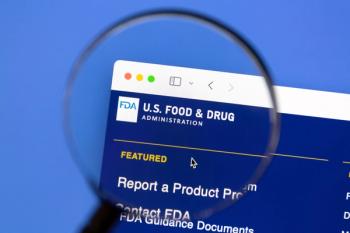
- June 2020
- Volume 24
- Issue 1
Differentiate Allergy and COVID-19 Symptoms
Although some similarities exist, a few key differences can help differentiate the symptoms.
With allergy season in full swing during the coronavirus disease 2019 (COVID-19) pandemic, many individuals fear that their allergy symptoms may be a complication of COVID-19. Although some similarities exist, a few key differences can help differentiate the symptoms.
COVID-19 symptoms appear 2 to 14 days after exposure to the virus, according to the CDC. These may include chills, cough, difficulty breathing or shortness of breath, and fever.1 The CDC recommends that patients immediately seek emergency medical care if they show any signs of bluish face or lips, an inability to stay awake or wake up, new confusion, or persistent pain or pressure in the chest.1 On the other hand, seasonal allergies range from mild to severe, with the most common symptoms including ear congestion; itchy ear canals, sinuses, or throat; itchy or watery eyes; postnasal drainage; a runny or stuffy nose; and sneezing.2
A main difference between allergies and COVID-19 is the treatment options. Many OTC drugs are available to help manage allergies. One way they do this is by blocking the effects of histamine; antihistamines such as diphenhydramine (Benadryl) and loratadine (Claritin) can help fight allergies.3 Another option is to suppress the immune system response before it releases histamine, through use of corticosteroid nasal sprays; budesonide (Rhinocort), fluticasone propionate (Flonase), and triamcinolone (Nasacort) are a few recommended options.3
Importantly, pharmacists should provide counseling points and guide patients to the appropriate treatment for allergies and COVID-19. Although some patients know their symptoms, they should still see a health care provider for proper assessment.
For example, Christy Blanco, DNP, APRN, WHNP-BC, president and legacy member of Texas Nurse Practitioners in Austin, understands that although many individuals are still scared to see a medical provider, use of a resource such as telemedicine is the best option for evaluation of symptoms.“I know we’re at a time of high anxiety, a lot of stress, so any little thing that happens, maybe 1 sore throat, and [patients] think, ‘Oh my, I might have this!’” she said in an interview. “So I encourage people: If you don’t want to go in to see your medical provider, it’s OK to use telemedicine.”4 Blanco is an assistant professor at Texas Tech University Health Sciences Center El Paso and a women’s health nurse practitioner at Integrative & Personalized Hormone Therapy LLC in Santa Teresa, New Mexico.
Another way to counsel patients is by identifying the culprit and reviewing anything that can worsen symptoms. According to Guido R. Zanni, PhD, a psychologist and health-Systems consultant in Alexandria, Virginia, many individuals are aware of their seasonal allergies yet cannot pinpoint the cause. Suggesting a log that tracks the environmental surroundings and time of day of that allergy symptoms present can help narrow the list for a patient. However, if patients are experiencing ongoing intense symptoms, they may need to see a specialist.5
REFERENCES
- Symptoms of coronavirus. CDC. Updated May 13, 2020. Accessed June 1, 2020. https://www.cdc.gov/coronavirus/2019-ncov/symptoms-testing/symptoms.html
- Allergy symptoms vs COVID-19 symptoms. Family Allergy & Asthma. Accessed June 1, 2020. https://www.familyallergy.com/general/allergy-symptoms-vs-covid-19-symptoms
- Choosing an over-the-counter allergy medication. Harvard Health Publishing/Harvard Medical School. March 2019. Accessed June 1, 2020. https://www.health.harvard.edu/diseases-and-conditions/choosing-an-over-the-counter-allergy-medication
- The role of nurse practitioners during COVID-19. Contemporary Clinic®. May 18, 2020. Accessed June 1, 2020. https://www.contemporaryclinic.pharmacytimes.com/videos/the-role-of-nurse-practitioners-during-covid-19
- Zanni GR. Top 10 counseling tips for allergies. Pharmacy Times®. April 18, 2011. Accessed June 1, 2020. https://www.pharmacytimes.com/publications/issue/2011/April2011/Top-10-Counseling-Tips-for-Allergies
Articles in this issue
over 5 years ago
Fish Oil Supplements Lower Risk of CVD, Premature Deathover 5 years ago
Many Americans Do Not Follow Proper Health, Hygiene Practicesover 5 years ago
Help Minimize Oral Painover 5 years ago
Help Patients Relieve Mild COVID-19 Symptomsover 5 years ago
GERD Has a Variety of OTC Treatment Optionsover 5 years ago
OTC Guide: Leading the Wayover 5 years ago
2020 Survey of Pharmacists' Recommendations: 24 Years Strongover 5 years ago
Our Role in OTC Products Has Never Been More VitalNewsletter
Stay informed on drug updates, treatment guidelines, and pharmacy practice trends—subscribe to Pharmacy Times for weekly clinical insights.


























